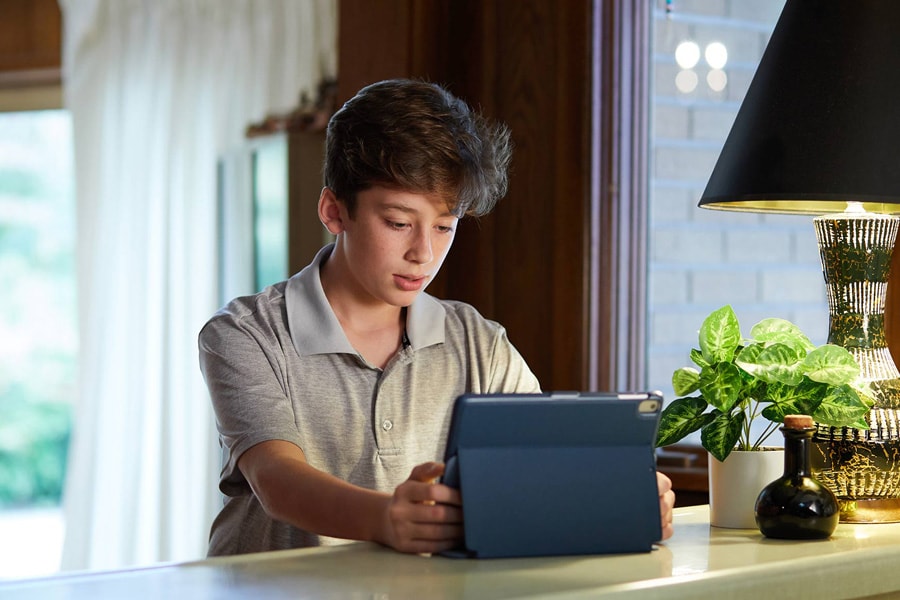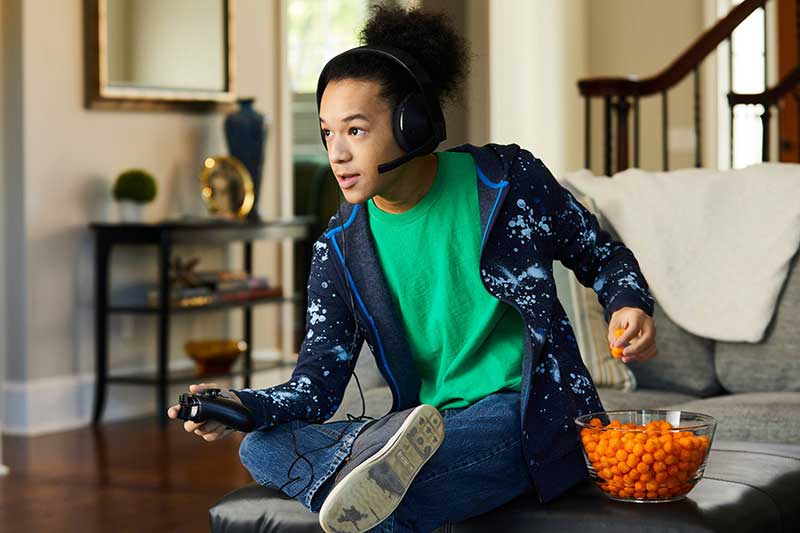How Screen Time Affects Kids' Emotional Wellness
There’s no debating it: The age of smartphones has changed the way we parent and the way our kids experience childhood. We are chained to work even when we come home; on the flip side, our brains get a surge of pleasure each time we tap those social media icons. Kids of all ages—even babies—are consumed by screens too. Jody Baumstein, licensed therapist with Children’s Healthcare of Atlanta Strong4Life, spells out the top screen-time dangers for kids and offers tips on how to get those good vibes offline.
In this article:
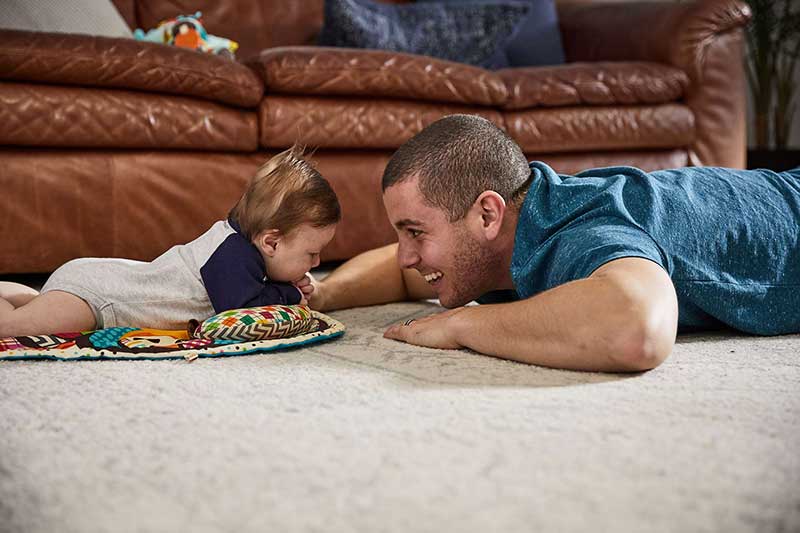
Why screens and babies don’t mix
From the early weeks, babies seek out eye contact to gain information and reassurance. They learn language and social skills by hearing parents talk and engaging in babbling “conversations.”
“One of the most important things you can do in the first year is have distraction-free, one-on-one interaction with your baby,” says Baumstein. “When your baby cries, talks or gestures and you respond appropriately with words, comforting touch and eye contact, you are building trust in the parent-child relationship, helping develop communication and social skills, and helping to build brain development.”
Don’t fall for electronic toys and programming that promise improved language and communication skills. Babies learn from people, not screens. In fact, the American Academy of Pediatrics recommends no screen time (other than video chatting) before 18 months. Screen time has been shown to negatively impact language development, sleep and attention.
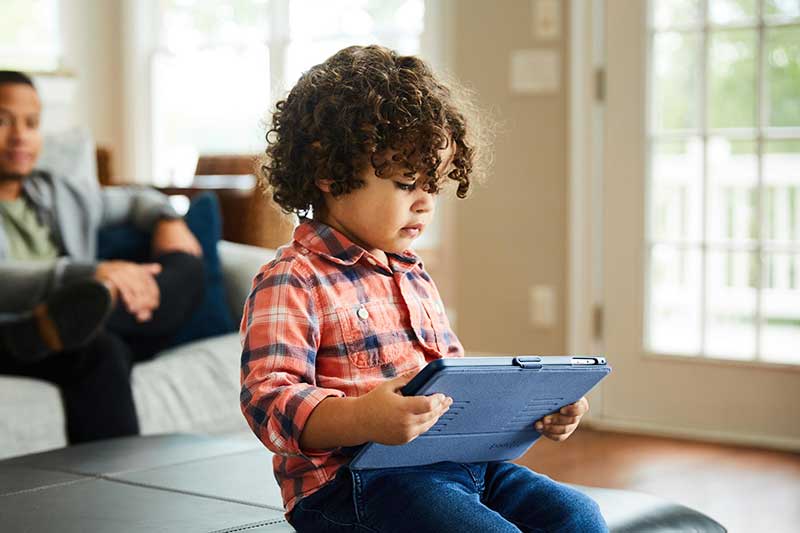
Screen time and toddlers
We’ve all resorted to handing the phone to our toddler to keep him occupied or happy, but there’s a slippery slope between solving short-term problems (such as the need to get dinner on the table) and creating long-term screen addiction. Over-reliance on screens can actually make your job harder, as young children don’t learn to regulate their emotions and deal with boredom without screens.
Tip: To help with the dinnertime craziness, consider stocking one drawer or cabinet with old Tupperware, spatulas, pot and pans, etc. so your little one can safely join you in the kitchen.

How screen time affects school-aged children
For elementary and middle schoolers, the stakes are even higher. Baumstein sees several trends among the families she treats, including:
- Distorted reality. Kids often can’t distinguish between what they see online and reality. “They’re seeing everyone else’s often-staged ‘highlight reel’ and constantly comparing it to their own life,” she says. “And when they see photos of celebrities, they normalize those images, which can lead to body image problems.”
- Exposure to inappropriate material. Kids may encounter violent or sexually explicit content online that they aren’t ready to understand—and you may not be ready to talk about.
- Social problems. People often say things online that they’d never say in person, which can cause conflict with others and damage relationships.
- Health concerns. Screen time can be associated with poor sleep, childhood obesity and increased anxiety.
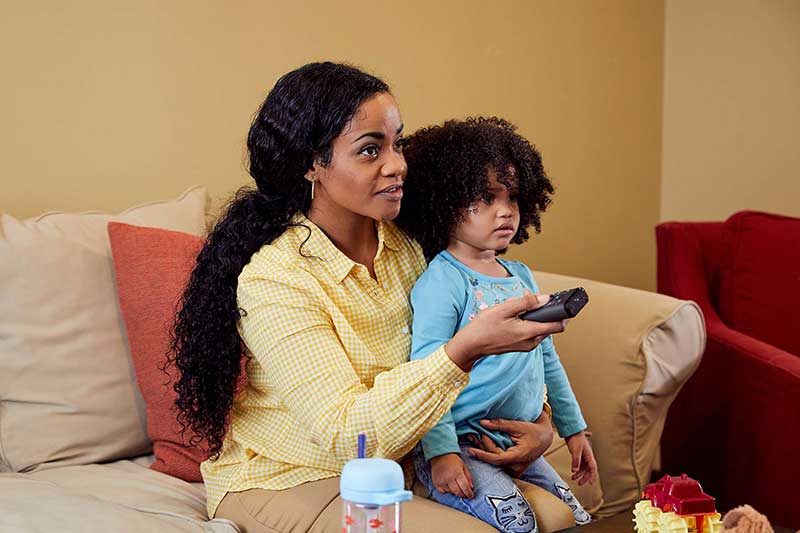
How to limit screen time
For better or worse, screens have a major place in our lives. Baumstein suggests setting limits around screen time when you can’t pull the plug entirely. Here are some boundaries and tips to consider:
- Supervise. Internet-enabled devices should only be used in common areas in the home. Phones, tablets and computers don’t belong in bedrooms.
- Co-view as much as possible when it comes to TV, especially for younger children. This allows parents to build on positive themes and lessons and to address any potentially upsetting content.
- Use parental controls and passwords for all devices and social media accounts, making a practice of checking them. (Caregivers should be on the same page about these rules.)
- Create screen-free zones. Make mealtimes and bedrooms screen-free to give your family opportunities to connect and so your kids can establish healthy nutrition and sleep habits.
- Set expectations. Make it clear when it’s OK to have screen time (once all homework is finished and chores are complete) and be up-front about how much time she can spend. Consider setting a timer so that your child knows to turn off the device once time is up.
- Be consistent. If you give in and let your child use devices for longer than usual one day, or let him take it to his room, he will expect it again next time and be disappointed when you try to enforce the rules.
“Parents sometimes feel awkward about checking their children’s devices and maintaining a list of their account passwords, but they shouldn’t!” says Baumstein. “Having a device is a privilege.”


